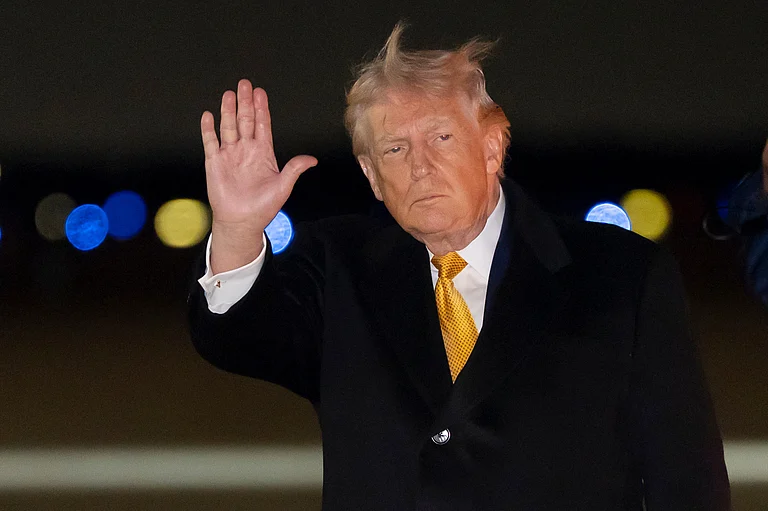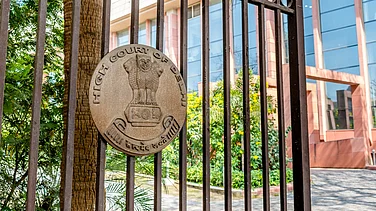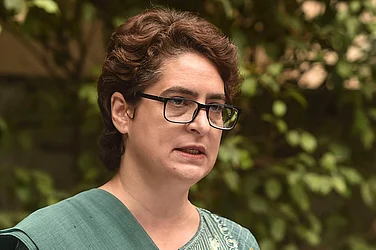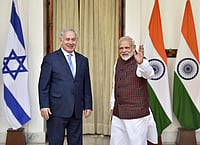The New Old Media
Five beats means a village meeting. Eight means a medical emergency. Paasa, an isolated little village in Odisha’s Kandhamal district, can only be reached after a 3 km uphill walk as there is no real road, is out of the coverage area of mobile phone networks, and hasn’t had electricity for the past five months as a defective transformer hasn’t been replaced. But the people there—around 35 tribal families—are having a banging time. They’ve improvised a gong to serve as Paasa’s primary means of communication. It’s made from a rusted piece of metal that was, aptly enough, left behind when electrification work took place in the village, and is fixed to a pole. Archaic, perhaps, but it can be a (morbidly) efficient way to disseminate information—it’s beaten once if someone dies and twice to call people to the funeral.

Poisonous Patient
Here’s a bit of deja vu for the dedicated reader: a serpentine intruder in a house being smacked with a stick by a fearful human, sustaining spinal damage, only to be rescued and taken for treatment. Only this time, the treatment included an MRI scan after a veterinarian suspected an injured backbone. Mumbai radiologist Ravi Thapar was reported as saying, “This is the first time we have done a scan on a snake. In fact, I had to do a bit of research about a serpent’s anatomy for that.” The reptile in question—a venomous 3-foot bamboo pit viper—was partly paralysed and thus easy to pin down for the scan. It has begun to recover with the help of ‘cold laser treatment’, which “works on the cells and receptors and helps regenerate damaged nerves,” according to veterinarian Deepa Katyal.

Synchronised Freezing
A swim in Kashmir’s Dal Lake seems a capital idea, although you’ll have to deal with a dense population of algae and, well, the cold. That bone-chilling cold. But that’s where three out of four members of the J&K swimming team who took part in the recently concluded National Swimming Championship in Thiruvananthapuram have to train due to the lack of a proper swimming pool in the Valley. They can only train for half the year, and must retreat to the safety of indoors when winter comes calling. Only the fourth team member, Satyam Gupta, is better off, because he is from Jammu and trains in that region’s sole proper pool. This is reportedly the first time in 10 years that a team from the state has been sent to the championship with the consent of the State Sports Council.

Khan’t Force One
Commuter Imran Khan enjoys a near-daily trip to work via helicopter from his home in the hills near Islamabad—a perk of the job, if you will. This has attracted adverse comments, coming as it does amid an economy drive in which PM Imran has undertaken the pruning of government motorcades, even saying, “I will be counting every single rupee I have to spend on me.” Information minister Fawad Chaudhry sprang heroically to his principal’s defence, claiming that the helicopter used less fuel than a motorcade and cost only Rs 50 a kilometre. The critics were unimpressed, perhaps because the minister hadn’t taken into account the expense it takes to run a chopper.

A Canine Syllogism Causes Anger
Socrates is a man. All men are dogs. Therefore, Socrates is a dog. A simple syllogism—what’s the problem? The ‘dog’ part, apparently. Considerable outrage has been generated by a Telangana State Public Service Commission recruitment exam for the post of village revenue officer, in which one question asked candidates to answer based on two statements: ‘All men are dogs,’ and ‘All dogs are cats.’ A picture of the question paper went viral. One Hyderabad resident said, “I am sure not even dogs and cats will like this, leave alone men,” while another, said that, out of the seven lakh aspirants, “all the males might have confessed that they were dogs and cats.”
The Burgeoning Cub Report
An unprecedented baby boom has taken place in Nepal, with the population of tigers having nearly doubled over the past nine years. Officials announced that a survey this year had reported 235 tigers, compared to 121 in 2009. It’s being held up as an exemplary conservation effort, with Man Bahadur Khadka, chief of wildlife conservation, saying, “This is a result of unified efforts by the government along with the local community...stakeholders to protect the tiger’s habitat and fight against poaching.” Stakeholders? Even tigers aren’t safe from corporate buzzwords, we fear.
Viennese Balls And Cashew Nuts
Always answer a work call. Especially if your boss is Sri Lankan President Maithripala Sirisena. The country’s ambassador in Vienna, Priyanee Wijesekera, and five other embassy staff, were recalled after telephone calls to the embassy “went unanswered for several hours.” The president justified his actions at a public meeting, saying, “I am being attacked ferociously over social media for recalling the entire embassy staff. Yes, I did that to send a message to other embassies.” This follows another, similarly powerful, message to SriLankan Airlines, whose business-class cashew nuts were recently the subject of Sirisena’s displeasure; he remarked that “even a dog would not eat it.”

Nettles After Offer
The knives are out for Imran Khan, both in India and Pakistan. His failed attempt at getting Indian and Pakistani foreign ministers to meet on the UN General Assembly sidelines has activated hardliners and evoked strong reactions across the borders.
In a letter to his Indian counterpart, Narendra Modi, the newly-elected prime minister had suggested the meeting at New York this month. Initially, the offer was well-received in New Delhi. But revelations of Pakistan glorifying Kashmiri militants as ‘freedom fighters’ in its postal stamps forced South Block to throw cold water on the budding warmth. The fact that this came to light when militants in the restive Kashmir Valley were targeting policemen at home made it untenable for New Delhi to move to the talks table.
If the Indian foreign office statement was surprising in its direct attack on Imran for terming Kashmiri militants ‘freedom fighters’, the response from Pakistan was no less vitriolic. Imran’s political opponents pulled him up for his “hasty” peace move towards India and called it “a diplomatic debacle.”
Pakistan’s two major opposition parties—the Pakistan Muslim League (Nawaz) and the Pakistan People’s Party—criticised Imran’s decision as done in “ haste to mend fences with India” and without doing the homework and correctly assessing the ground reality.
Warning that the fallout of the failed talks could even result in a war between the two recalcitrant neighbours, the PML(N) has even called on the international community to take note of the “jingoistic” statements of the Indian army chief. Though it was quick to point out that “Pakistan is more than capable of defending and responding to any aggression by New Delhi,” the attempt was also to make the world aware of the possible deterioration in Indo-Pak relations.
Under attack from different quarters, Imran has also tweeted to express his disappointment by insinuating the Indian PM as “a small man” occupying a “big office”.
Much of the reluctance to resume the stalled dialogue by Indian leaders might have stemmed from domestic compulsion, especially the forthcoming assembly elections in three states and the parliamentary polls in mid-2019.
But despite its keenness, Pakistan and its enthusiastic PM will have to get used to the fact that for any movement towards the talks-table, they will need a new script to make India interested. Until then, Imran will have to be patient and channelise his energy to build a “new Pakistan”.
Illustrations by Sajith Kumar


























